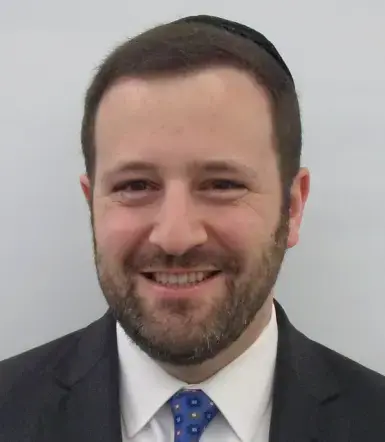Managing Frontline Toxicities in Patients With RCC
During a Targeted Oncology case-based roundtable event, Moshe Ornstein, MD, MA, discussed with participants their experiences managing toxicities of frontline combination therapy for renal cell carcinoma. This is the second of 2 articles based on this event.
Moshe Ornstein, MD, MA (Moderator)
Genitourinary Medical Oncologist
Cleveland Clinic Taussig Cancer Center
Cleveland, OH

DISCUSSION QUESTIONS
- How do you mitigate, monitor, and manage toxicities associated with IO (immunotherapy)-TKI (tyrosine kinase inhibitor) combination therapy?
- How do you decide which drug to modify when using a combination regimen?
- How often have you had to discontinue all systemic therapy for a patient due to adverse events (AEs)?
- Do you ever rechallenge with an IO after an irAE (immune-related AE)?
MOSHE ORNSTEIN, MD, MA: Are you finding that after 3 or 4 months, patients and your support staff are tired of managing TKI toxicities and are dropping the TKI? Do you find that once a TKI is held for toxicity, there’s some reluctance to resume it? How are you managing these toxicities, especially things like diarrhea or elevated liver function tests that can be either from the IO agent or from the TKI agent?
DONALD FLEMING, MD: If you have some toxicity that can be explained by either [IO or TKI], if you stop the TKI fairly quickly [and the toxicity resolves], it’s probably the TKI. If it’s an IO, it might take a longer period of time. You might even have to have a colonoscopy to rule out some kind of colitis. I think that’s very important. That’s one reason I favor ipilimumab [Yervoy] plus nivolumab [Opdivo] because you don’t have to worry about that after a while. And, if I do have ipilimumab/nivolumab and they have autoimmune-related toxicity, I’ll probably stop the ipilimumab and come back with the nivolumab later and see if they can tolerate that single IO therapy; often they have.
ORNSTEIN: Are you finding that there are patients who are on an IO-TKI and then after some period of time, maybe due to some intermittent toxicities, they end up on the IO monotherapy within the first year or so?
FLEMING: I use a lot of ipilimumab/nivolumab. I just had a case where an older patient had a good response, but she developed pneumonitis and responded very promptly to steroids. I wasn’t going to put her on anything and when I sent her back to the referring university, they said to put her back on the nivolumab alone and she’s done quite well.
ORNSTEIN: I do think that there is a role for rechallenging with an IO agent after an irAE. What I normally do is give them a couple months break and I’ll maybe scan them 2 months after they had the toxicity. If they have a preserved response, I’m not so inclined to rechallenge them. They are still responding, and we know that there can be prolonged responses even off the immunotherapy. I just keep watching them off therapy. But if they have a more of a nasty disease or this is within the first couple of months of treatment where we didn’t really have a chance yet to get the benefit that we want to see, then we do it case by case. But we’ve certainly rechallenged patients with IO therapy after irAEs, especially for those like the patient you mentioned where the pneumonitis or the hepatitis resolves quickly.
ASHIS CHAKRABARTI, MD: I can say that most of the time if you dose reduce the TKI, it goes very smoothly. Very rarely do we have to discontinue IO, and sometimes briefly interrupt that and give steroids for some possible immune-mediated toxicities, but they can restart that.
Enhancing Precision in Immunotherapy: CD8 PET-Avidity in RCC
March 1st 2024In this episode of Emerging Experts, Peter Zang, MD, highlights research on baseline CD8 lymph node avidity with 89-Zr-crefmirlimab for the treatment of patients with metastatic renal cell carcinoma and response to immunotherapy.
Listen
Beyond the First-Line: Economides on Advancing Therapies in RCC
February 1st 2024In our 4th episode of Emerging Experts, Minas P. Economides, MD, unveils the challenges and opportunities for renal cell carcinoma treatment, focusing on the lack of therapies available in the second-line setting.
Listen